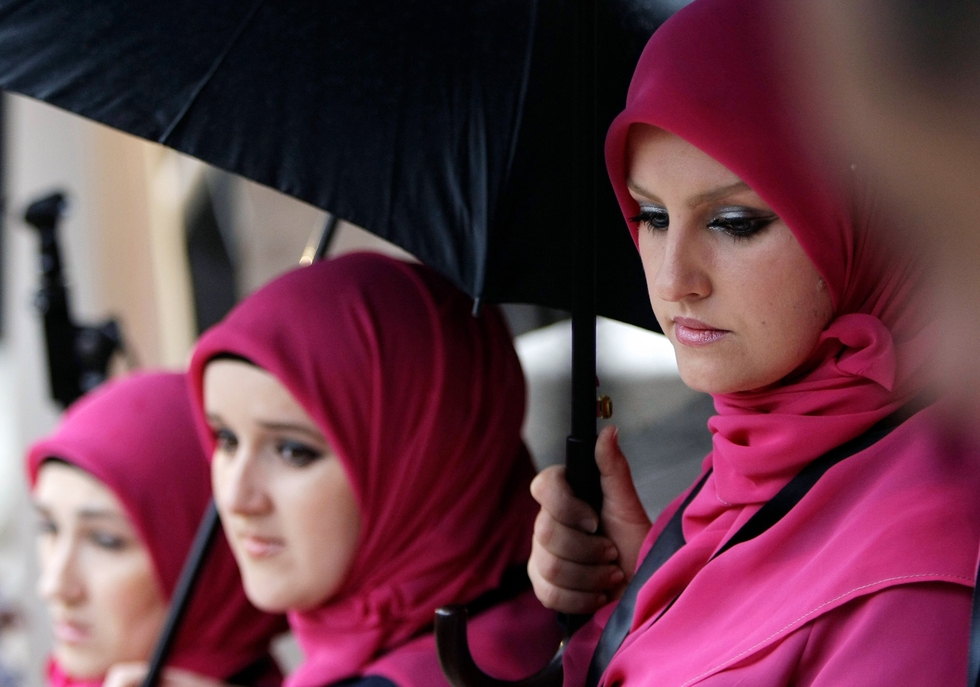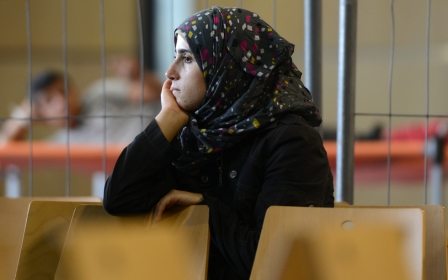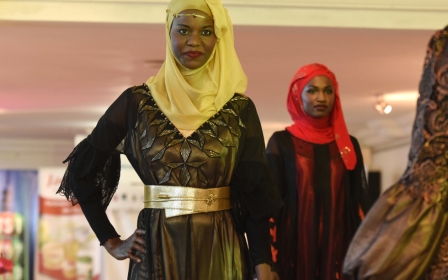Secular feminism is silencing Islamic feminism

MADRID, Spain – Last month, the Embassy of Sweden in Madrid, Spain, and the Spanish think-tank Real Instituto Elcano organised a conference on United Nations Security Council (UNSC) Resolution 1325, which acknowledges the impact of armed conflict on women and girls, and addresses the pivotal role of women in conflict prevention, conflict resolution and peace-building processes.
Although there are over 25 active conflicts in the world, and most of them are taking place in the Middle East and North Africa region – including the civil war in Syria and the war against the self-proclaimed Islamic State in Iraq – all the speakers listed on the conference’s programme were of European origin.
As a gesture of protest, I did not attend the conference in question.
Today, the participation of Middle Eastern and North African women in many international forums is still nonexistent or low. Most worrisome, their voices are often silenced by the voices of Western feminists, particularly by those who advocate – and on occasions attempt to impose – a universal brand of feminism: secular feminism.
Is western feminism Islamophobic?
In the aftermath of the so-called Arab Spring, Middle Eastern and North African women worldwide started claiming their agency en masse via social media platforms, calling for political reforms and gender equality in their respective countries. They followed the example of Asmaa Mahfouz, the Egyptian Muslim activist who helped sparked the 2011 Egyptian revolution through a video blog posted on Facebook on 18 January 2011.
Among these women was a Tunisian 19-year-old named Amina Sbui, also known as Amina Tyler, the founder of the Tunisian branch of the Ukraine-based feminist group Femen.
In March 2013, Amina posted two photographs of herself on Femen’s Facebook page. In one image she was shown with the words “F*** your morals” painted across her bare chest. In the other image, she was portrayed with the following message written in Arabic across her naked frontal torso: “My body belongs to me, and it is not the source of anyone’s honour.”
Shortly after Amina posted these photographs, Iman Almi Adel, then leader of Tunisia’s Commission for the Promotion of Virtue and Prevention of Vice, issued a fatwa or legal opinion in which he argued that Amina had committed a crime, and that she should be sentenced according to Sharia law, a legal system based on Islamic scholarship and jurisprudence.
In support of Amina, the leadership of Femen declared 4 April 2013 the International Topless Jihad Day, which consisted of Western women in their twenties protesting topless against Islamism – or so they claimed – at the entrance of mosques and Tunisian embassies across Europe.
For example, three topless Femen activists burnt a Tawhid flag in front of the Grande Mosquée de Paris, France. The principle of Tawhid constitutes the foremost article of the Muslim profession of faith: the oneness of God.
Many Western feminists, including myself, questioned Femen tactics. Why are Femen activists weaponising their bodies instead of their intellects? Why do Femen activists relate their own sexual liberation to the emancipation of Muslim women? Do Femen activists assume that Muslim women do not have a voice of their own to protest in support of Amina? And, most importantly, are Femen activists Islamophobic?
In Amina’s opinion, burning the Tawhid flag was insulting, as this flag represents the faith of 1.6 billion people in the world: “I am against that,” she told French TV Canal+. “They [Femen activists] did not insult a certain kind of Muslims, the extremists, but all Muslims.”
Like many Westerners, Femen activists assume that the Muslim community is monolithic rather than diverse. Why do we, Westerners, continue to make such an assumption?
In response to Femen’s protest, Muslim activists created the Facebook page Muslim Women Against FEMEN, which has more than 16,000 followers. The cover photograph of this Facebook page reads: “Nudity DOES NOT liberate me, and I DO NOT need saving #MuslimahPride #FEMEN.”
Some followers use this platform to argue that the hijab is not a symbol of oppression, but a symbol of identity. Others use the platform to reclaim their voice. For example, one follower posted a photograph of herself with the following message: “My hijab is my pride. Islam is my freedom. This is my choice. I don’t need you [Femen activists] to be my voice. I have mine.”
Their messages triggered an international debate. Why do we, secular Western feminists, continue to speak in the name of Middle Eastern and African women? Are we, secular Western feminists, afraid of embracing the diversity of feminist thought, including Islamic feminism? And are we, Western feminists, oppressing Muslim women?
Three years after the media frenzy that ensued, the participation of Middle Eastern and North African women in international forums remains non-existent or low. Fortunately, they are launching their own forums: online platforms where they promote their ideas on gender equality, human rights and peace. One of these platforms is the digital magazine Sister-hood.
When are we, Western feminists, going to include their voices in our platforms?
Feminism is compatible with Islam
The vast majority of Middle Eastern and North African feminists are not against Islam. Rather, they are against certain interpretations of religious doctrine and repressive laws, and aim to articulate a societal system that includes gender equality alongside their faith.
Contrary to Western popular belief, Islam and feminism are not mutually exclusive. It is possible to construct a societal system in which women can fight for equality from within Islamic tradition by claiming their right to discuss Islamic law, and to participate in the interpretation of jurisprudence.
For example, in 2004, the Moroccan parliament passed a bill that defines marriage as an equal partnership between spouses. This bill gave women the right to divorce and protected them from talaq, an Islamic practice that allows husbands to dissolve a marriage at will.
This reform set an example of the kind of change that is possible through women’s engagement with Islamic jurisprudence. It has been possible to incorporate gender equality into an Islamic framework.
Now it is time to incorporate equality into the Western definition of feminism. As Islam, feminism is not monolithic, but diverse, and it is time to embrace the diversity of feminist thought, and amplify Middle Eastern and North African voices at an international level.
- Tania Ildefonso Ocampos is a Spanish political analyst who specialises in EU strategy in the Middle East. She is a former Schuman trainee (Euro-Med and Middle East Unit of the European Parliament's Directorate-General for External Policies), and holds an MA in Middle Eastern History from Tel Aviv University, Israel.
The views expressed in this article belong to the author and do not necessarily reflect the editorial policy of Middle East Eye.
Photo: Bosnian Muslim women at the the re-opening ceremony of the Gazi Husrev-bey library in Sarajevo, on 15 January, 2014 (AFP).
This article is available in French on Middle East Eye French edition.
New MEE newsletter: Jerusalem Dispatch
Sign up to get the latest insights and analysis on Israel-Palestine, alongside Turkey Unpacked and other MEE newsletters
Middle East Eye delivers independent and unrivalled coverage and analysis of the Middle East, North Africa and beyond. To learn more about republishing this content and the associated fees, please fill out this form. More about MEE can be found here.





